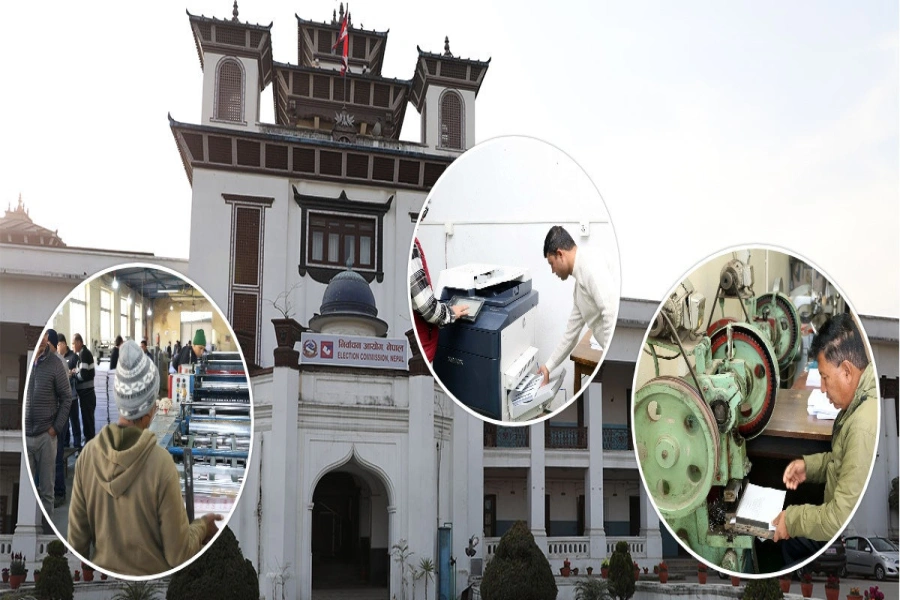In 2004, Francis Fukuyama famously referred to transhumanism as "the world's most dangerous idea." However, as we approach 2023, the notion that once appeared farfetched has garnered credibility as a potential future reality. What factors could be contributing to this shift in mindset?
In a groundbreaking development, Neuralink, the visionary neurotech startup co-founded by Elon Musk, recently received the green light from the Food and Drug Administration (FDA) to embark on its first-ever in-human clinical study. This FDA approval not only marks a significant milestone for Neuralink but also signifies the beginning of a new era in the fields of neurology and human-computer interfaces.Neuralink, with this regulatory clearance,is poised to explore uncharted territories and redefine the boundaries of what is possible in the realm of human augmentation signaling a start an era of humans 2.0. In a world that is rapidly advancing towards a profound technological transformation, it is unfortunate that the Nepali parliament seems unaware of the impending changes and fail to prioritize these urgent issues that will directly impact Nepalin the future.
The term "Human 2.0” symbolizes the idea of a superior version of humanity, equipped with advanced capabilities and potential advancements in areas such as artificial intelligence, genetic engineering, neural interfaces, and biotechnology. Human 2.0 refers to a vision of the next stage of human evolution, where humans have undergone significant enhancements and advancements through the integration of technology and biological modifications. While the notion of Humans 2.0 may appear to belong to the realm of science fiction novels, the recent FDA approval for human testing of Elon Musk's Neuralink brings us closer to this reality than we might have imagined. With each stride Neuralink takes in its advancement, the prospect of a future where humans surpass their biological limitations and embrace a transhumanist vision becomes increasingly tangible. This vision also encompasses enhanced abilities and the exploration of far galaxies.
Transhumanism has recently gained traction in developed societies with its proponents seeking to liberate humanity from its biological limitations, aiming to transcend the current stage of our species through the use of advanced biotechnology. While some may dismiss transhumanists as an eccentric cult, their beliefs are not entirely far-fetched. In fact, elements of transhumanism are already present in contemporary biomedical research, with the potential to enhance human capabilities and prolong life.The primary appeal of transhumanism, however, lies in its proposition to overcome human weaknesses, including disease, physical limitations, and our inherently flawed nature, ultimately aiming to surpass mortality.
While the gradual acceptance of transhumanist ideals is evident, it is also crucial to recognize and address the inherent dangers associated with them. Society may unwittingly embrace biotechnology's offerings without fully understanding the moral implications they carry.One of the first casualties of transhumanism could be the concept of equality as the fundamental principle that all humans are equal has been the basis of political struggles for centuries as depicted in the Hollywood film titled "Elysium"- a sci-fi film set in a future where society is divided between a wealthy elite on a luxurious space station and the impoverished masses on Earth. It follows Max's quest to reach Elysium for life-saving medical treatment, exposing social inequality and the pursuit of a better life raising important questions about power dynamics and the consequences of societal divisions.
7 Earth-size worlds found orbiting star; could hold life

Yet, transhumanism challenges this notion by seeking to modify the essence of humanity itself. If we begin transforming ourselves into superior beings, questions arise regarding the rights and privileges of these enhanced individuals compared to those left behind. The consequences of limited access to biotechnological advancements are particularly grave for individuals in countries like Nepal, where poverty hinders their ability to benefit from various techno-social opportunities. This disparity in access further exacerbates the gap between countries, potentially leaving Nepal and similar nations behind. Nepal could end up resembling the overpopulated and polluted world depicted in the movie "Elysium," where the majority of the population struggles to survive in harsh conditions and lacks access to advanced healthcare and technology.
Also, our virtues and vices are intertwined, and modifying one aspect inevitably affects the entire package of traits that make us who we are. The ultimate outcome of such modifications remains unpredictable.Given that transhumanism challenges the concept of human equality and entails potential risks associated with altering our fundamental nature, the temptation to overcome our flaws must be balanced with a profound appreciation of the intricate complexity and interconnectedness of human characteristics.Otherwise, we risk allowing transhumanist ideals to mar the essence of humanity itself, without fully comprehending the consequences.
Many people are somewhat confused about the concept of Humans 2.0 and transhumanism. The concept of Humans 2.0 is intricately linked to the philosophy of transhumanism, often used interchangeably to represent the same idea, but there is a slight difference. Both Humans 2.0 and transhumanism share a common goal of seeking to enhance human abilities, extend lifespan, and overcome the limitations of our biological form, but transhumanism takes an extreme approach where the concept of the soul could potentially be the only aspect of humanity that remains distinctly human within a neo-human machine.Furthermore, transhumanism is a philosophical and intellectual movement that explores the possibilities of human enhancement through technology, while Humans 2.0 specifically refers to the concept of an evolved or upgraded version of human beings in the context of transhumanist ideals. In that sense, Humans 2.0 can be seen as a subset or specific vision within the broader framework of transhumanism.
In the realm of radical transhumanism, human consciousness is transferred into a virtual world, liberating the human identity from the confines of the physical body. This transformative process enables immortality and liberation from physical limitations. The fusion of human and machine consciousness holds the potential to enhance physical strength, emotional well-being, and lifespan significantly. The concept is depicted in the 2017 Hollywood movie titled “The Ghost in the Shell.” The film delves into themes of identity, consciousness, and the nature of humanity, questioning the boundaries between the physical and digital realms.
Despite undergoing such radical technological transformation, transhumanism presents significant regulatory challenges and carries profound implications for human rights. While the technology itself may not be inherently harmful, its improper use can lead to violations of fundamental human rights, including physical and mental integrity, freedom of thought, and even the right to life. To mitigate these risks, it is necessary to establish appropriate regulations, the development of critical thinking is crucial. It is anticipated that numerous countries will soon enact legislation to safeguard individuals' cognitive and behavioral autonomy, as well as their freedom to interact with machines. This will give rise to the emergence of neuro-rights and transhumanism as new legal frontiers.The crucial discourse should commence within the esteemed halls of parliament.
It is imperative for the Members of Parliament (MPs) in Nepal to proactively prepare for the age of transhumanism. As key decision-makers, The MPs have a pivotal role in shaping the path of technological progress and safeguarding the interests of society. Therefore, during the parliamentary sessions, MPs should engage in meaningful discussions to explore the necessary actions that will guide Nepal towards a transhumanist future. By taking immediate steps, the government can pave the way for a forward-thinking approach, ensuring that Nepal stays at the forefront of technological advancements.The MPs and the government can immediately implement several measures to ensure that Nepal is adequately prepared for the future.
First, the government should establish clear regulations and ethical frameworks to govern the development and use of transhumanist technologies to ensure that concerns such as privacy, informed consent, equity, and potential risks associated with human enhancement are carefully studied and addressed.
Second, the government should invest in research and development initiatives focused on transhumanist technologies by providing funding for scientific studies, promoting innovation, and fostering collaboration between academia, industry, and other stakeholders. Governments should support the advancement of these technologies.
Third, governments should promote public education and awareness programs to foster a better understanding of transhumanism by disseminating accurate information about the potential benefits, risks, and ethical implications of emerging technologies. Governments should empower individuals to make informed decisions and engage in meaningful discussions.
Fourth, governments should strive to ensure equitable access to transhumanist technologies by working towards preventing a potential divide between those who can afford enhancements and those who cannot, implementing policies that address affordability, inclusivity, and accessibility for all citizens.
Fifth, governments should adapt existing legal frameworks or create new ones to address emerging challenges in the age of transhumanism by updating laws related to privacy, identity, intellectual property, and human rights to reflect the evolving technological landscape.
Sixth, governments should engage in international collaboration and dialogue to establish global standards and norms regarding transhumanist technologies by participating in cooperative efforts, governments should share best practices, harmonize regulations, and address potential cross-border implications.
Finally, governments should establish independent bodies or REGULATORY AGENCIES to oversee the ethical implications and responsible development of transhumanist technologies. These entities should provide guidance, conduct evaluations, and ensure adherence to established ethical principles, thus safeguarding the well-being of individuals and society as a whole.
By implementing these proactive regulatory measures, the Government of Nepal can effectively prepare for the age of transhumanism to reap societal benefits, safeguard individual rights, and address potential ethical challenges. The MPs have to immediately push transhumanism in the parliament and recognize the significance of these advancements and begin preparing Nepal for the future. Taking timely action will enable the country to stay at the forefront of technological progress, ensure the well-being of its citizens, and seize the opportunities that this transformative era presents.Failure to acknowledge and adapt to the advancements of transhumanism would leave Nepal lagging behind, akin to being stuck in the Stone Age. By embracing the potential of transhumanist technologies and taking proactive steps towards their integration, Nepal can position itself at the forefront of scientific and technological progress.





































